Laparoscopic panhysterectomy: removal of the uterus with appendages
Pangysterectomy - types of operation, stages, rehabilitation
Surgery to remove the uterus along with the appendages is called a pangysterectomy. This type of surgical treatment is used only in limited cases - in malignant tumors that do not respond to radiation therapy, in benign tumors in the uterus. Extended uterine extirpation is the complete removal of a hollow organ with appendages and cervix. Such surgery belongs to the category of time-consuming and long, has clear contraindications for:
- uterine enlargement;
- history of cesarean section;
- childbearing age (there are exceptions for malignant neoplasms).
Doctors prefer to perform surgery to remove the uterus and appendages after menopause in women.
Types of uterine extirpation with appendages
- laparoscopic extirpation of the uterus;
- vaginal access;
- laparotomy with an incision on the anterior wall of the peritoneum.
Doctors prefer the laparoscopic method because it is a minimally invasive procedure with low trauma and a short rehabilitation period.
Before the final method of surgical removal of the uterus with appendages (or without), the patient must undergo a complete examination and pass the necessary tests. The doctor must be sure that there are no contraindications to surgery.


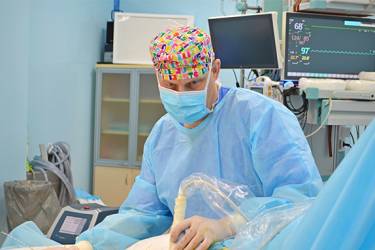
How is the extirpation of the uterus
This type of surgery is performed in several stages:
- The course of the operation in case of vaginal extirpation of the uterus or laparotomy begins with an incision and an audit of the organs.
- Then the lower part of the intestine is removed with a sterile napkin and large ligaments are tied or crossed.
- The uterus is removed to the left and back, and all manipulations with the ligaments are performed on the right side.
- The clamped ligaments are incised, first of all in those places where there are no blood vessels - thus it is possible to prevent the development of bleeding in the postoperative period.
- The folds between the uterus and the bladder are incised. Bent scissors are inserted into the formed space.
- After the described manipulations the doctor sews a round connection.
The second stage of the operation to remove the uterus with the appendages is to tie the ligaments of the ovaries and fallopian tubes. After that, the appendages are cut off from the uterus - this manipulation is performed with special care, because there is a high risk of rupture (damage) of the ureters.
The final stage - the bladder is moved to the side to access the uterus with the cervix. Then cut all the ligaments. The vessels are immediately clamped and sutured.
After extirpation of the uterus with appendages, a woman has to go through a long recovery period.
Rehabilitation after surgery to remove the uterus with appendages
Recovery after surgery is difficult - often there are psycho-emotional problems. Realizing that a woman's internal organs have been completely removed can lead to depression, apathy, and even suicide attempts. Such consequences of uterine extirpation are corrected only by a psychotherapist. A patient who has undergone such surgical treatment must be referred to a specialist. The problem is exacerbated by the lack of sexual desire - in this case will help not only a visit to a psychologist, but also hormonal, sedative drugs, which are prescribed purely individually.
Monthly discharge after uterine extirpation usually stops, although in some women it may persist. This is possible only in one case - a woman is forced to constantly take hormonal drugs, although this is an exception. The fact of cessation of menstruation affects the psyche, especially if the operation was performed on a woman of childbearing age.
A separate issue is the conduct of radiation therapy after removal of the uterus with appendages. Such appointments are made to patients who have previously been diagnosed with a malignant tumor. This is done to prevent recurrence. The rehabilitation period in this case will be longer, because the woman needs to recover not only after surgery, but also after radiation exposure.
Extirpation of the uterus with appendages - a difficult operation not only for the patient but also for medical staff: you need to have specificknowledge, have some experience. The preparatory period plays an important role. You can learn more about it and the intricacies of pangysterectomy on the pages of our website https://www.dobrobut.com/ .
Bibliography
- Chang S.S., Cole E., Cookson M.S. et al. Preservation of the anterior vaginal wall during female radical cystectomy with orthotopic urinary diversion: technigue and results. / J. Urol. – 2002. – Vol. 168. – P. 14421445.
- Bevers T. B. et al. Breast cancer screening and diagnosis, version 3.2018, NCCN clinical practice guidelines in oncology //Journal of the National Comprehensive Cancer Network. – 2018. – Т. 16. – №. 11. – С. 1362-1389
- Rouprêt M, Babjuk M, Compérat E, et al. EAU Guidelines on Urothelial Carcinomas of the Upper Urinary Tract. In: EAU Guidelines. Edition presented at the EAU Annual Congress Stockholm 2014. ISBN 978-90- 79754-65-6.
- Alei G, Letizia P, Sorvillo V, et al.Lichen sclerosus in patients with squamous cell carcinoma. Our experience with partial penectomy and reconstruction with ventral fenestrated ´ ap. Published online, August, 2012.
Our advantages
Gynecological Check-up
Our doctors
Choose the nearest clinic
ISO certificates
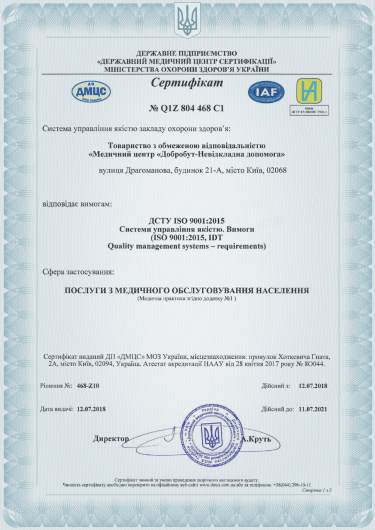
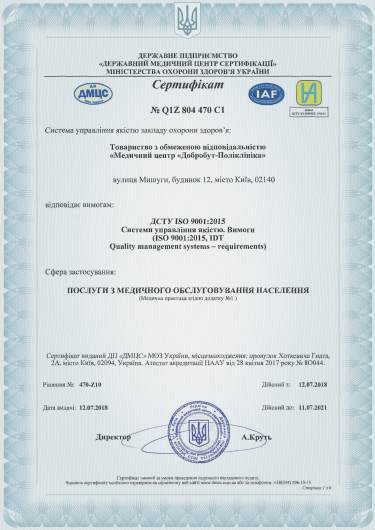
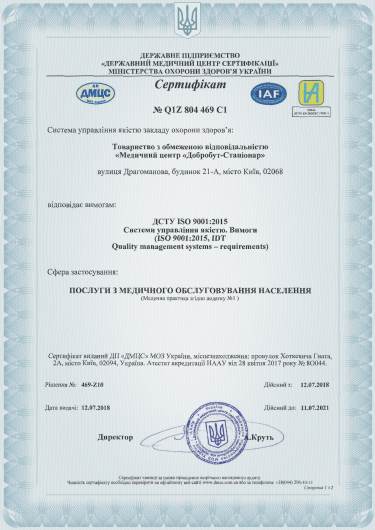
Accreditation certificates
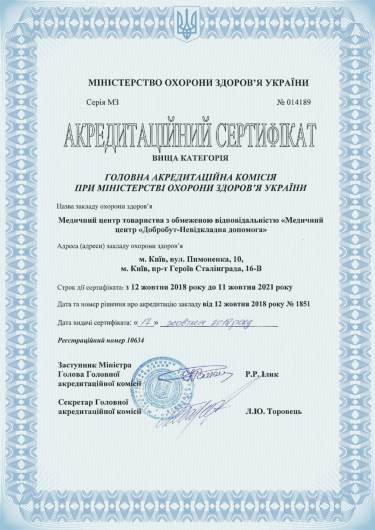
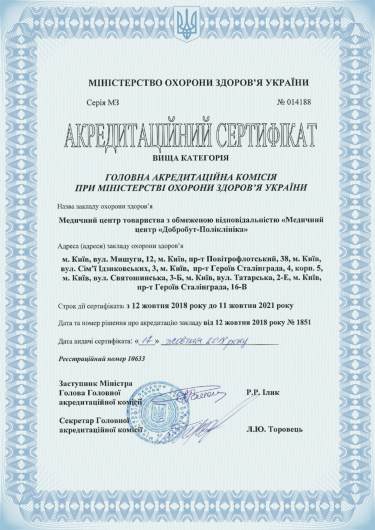
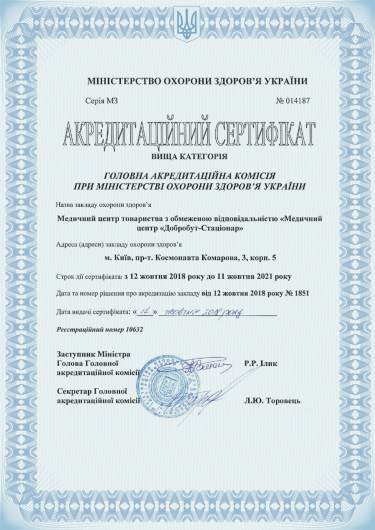
Medical practice licenses
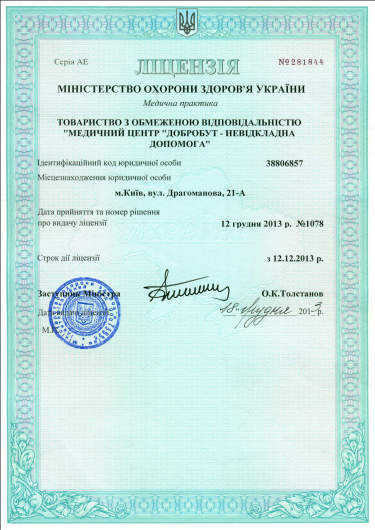
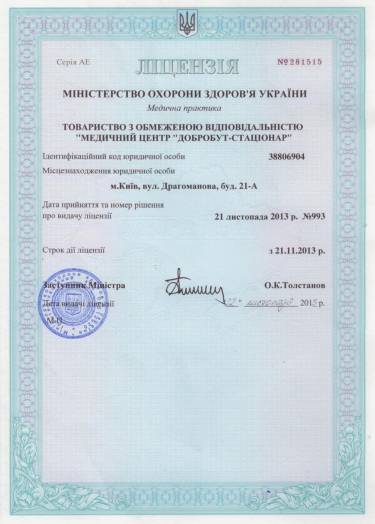
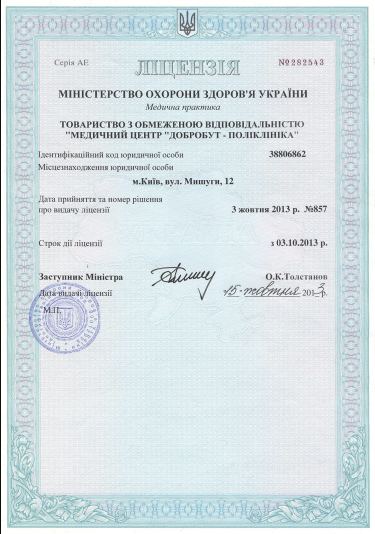
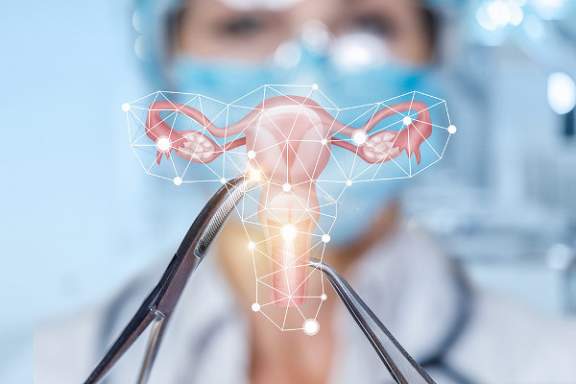

































@2x.png)
@2x.png)
%402x.png)
%402x.png)
